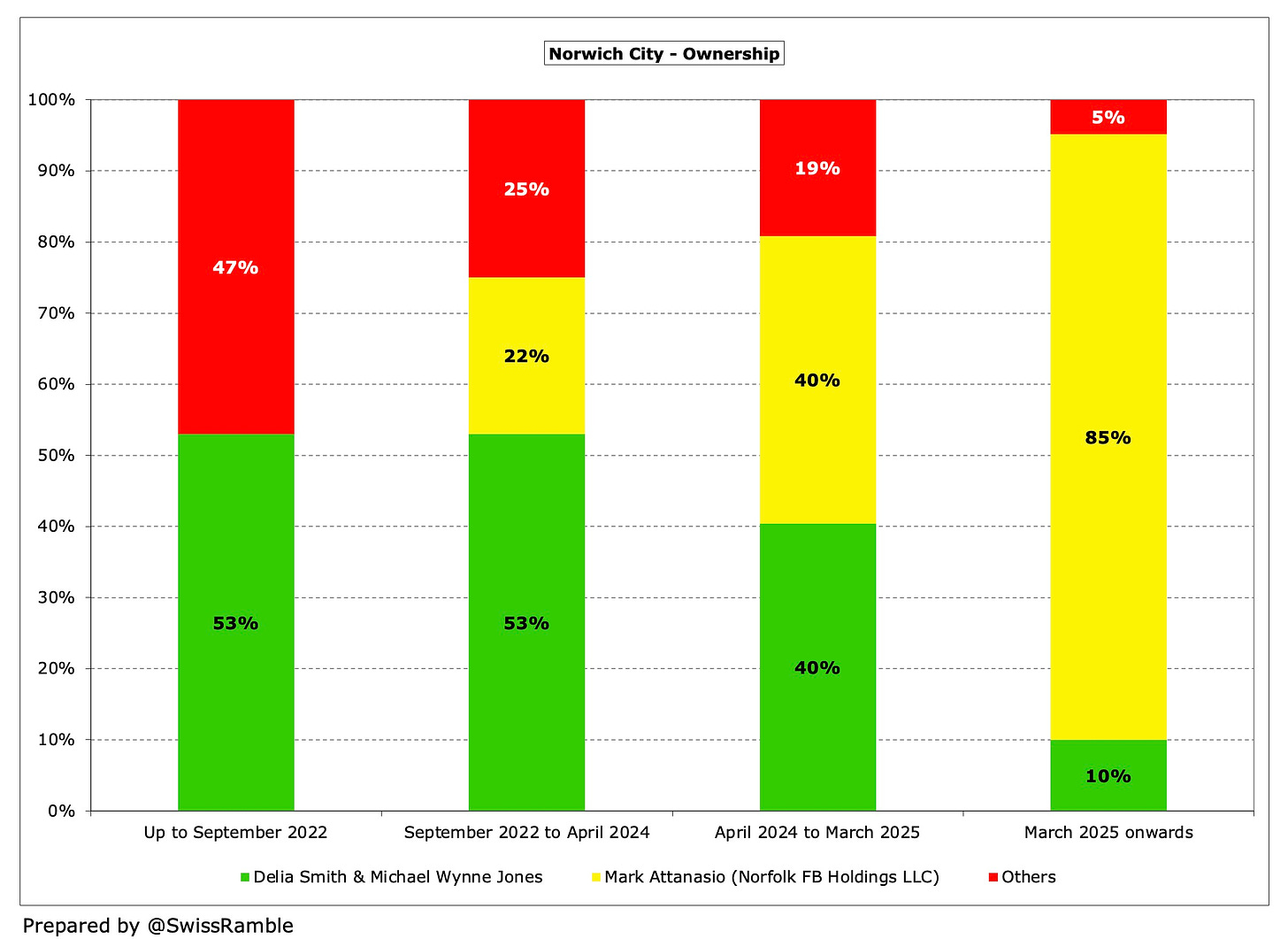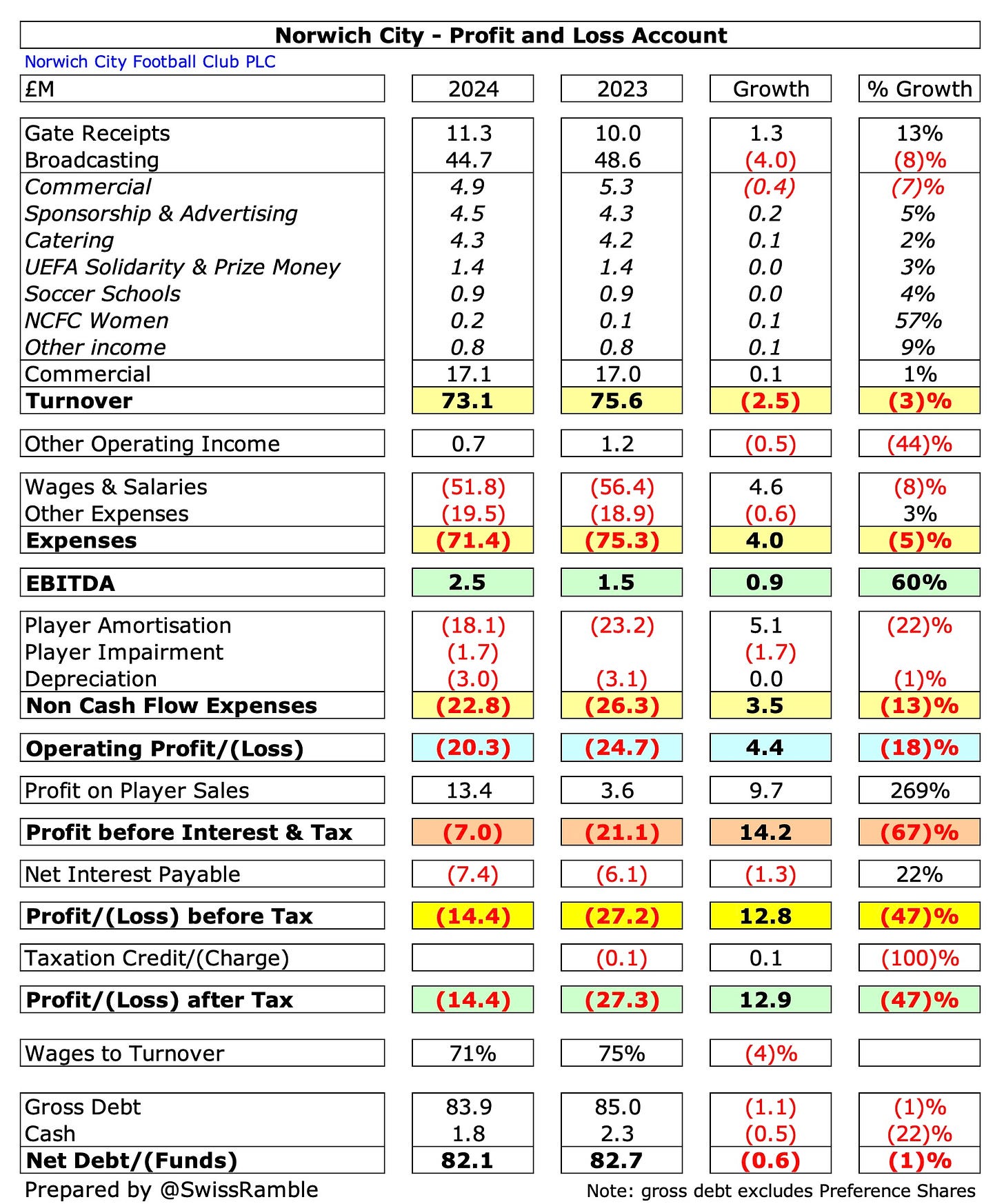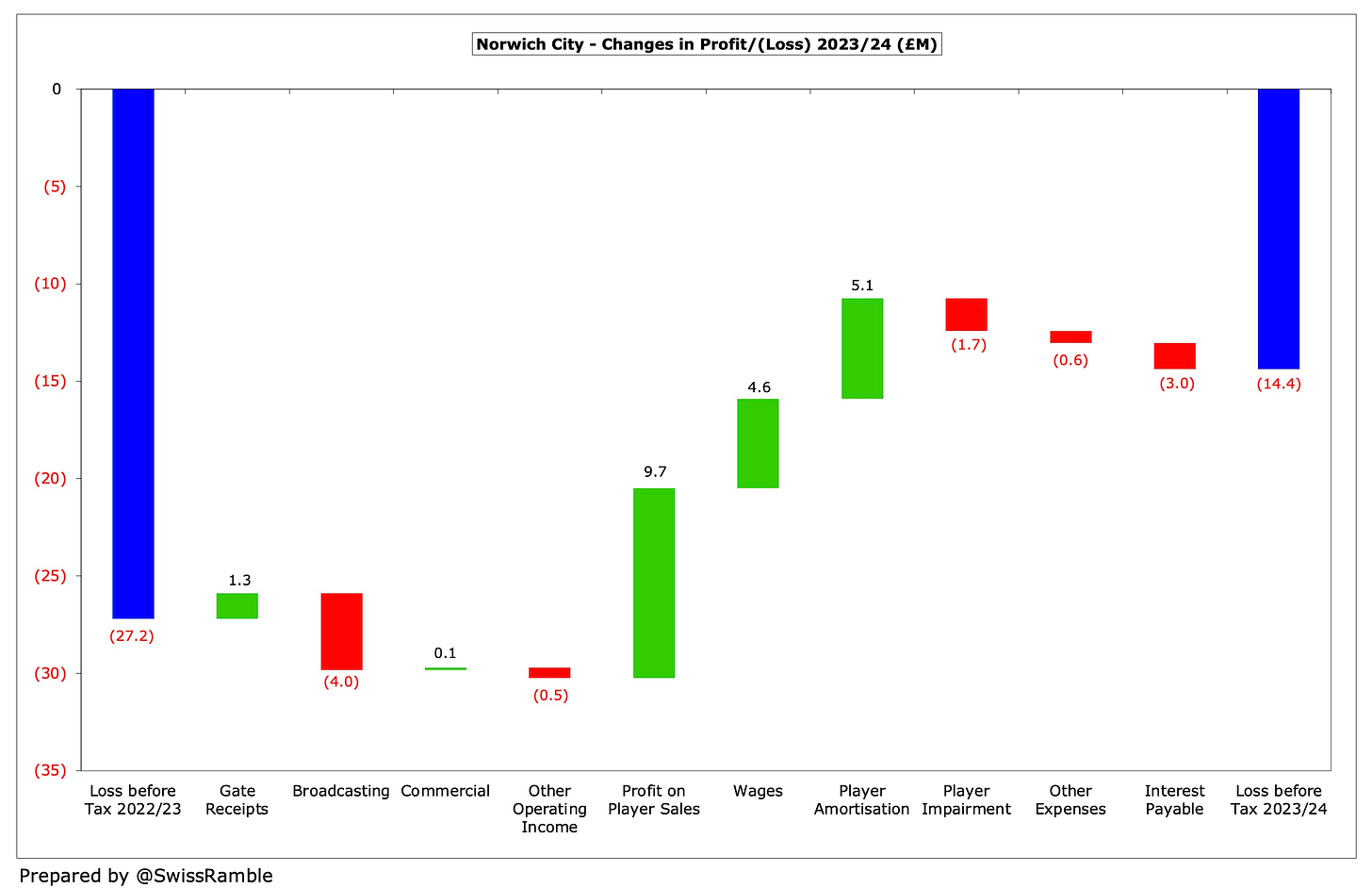Norwich City’s 2023/24 accounts cover a season when they finished 6th in the Championship, thus reaching the play-offs, though they were defeated by Leeds United in the semi-finals.
The club subsequently decided to make a change in head coach, replacing David Wagner with Johannes Hoff Thorup, the former manager of Danish side Nordsjaelland.
This was far from the only change at Carrow Road, as the long-serving sporting director, Stuart Webber, also exited stage left, succeeded by Arsenal’s player loans manager, Ben Knapper.
Indeed, executive director Zoe Webber said, “The level of change we have gone through, and continue to go through, is unprecedented in my time at the club.”
Ownership
This is partly a reference to the important change in ownership, as an extraordinary general meeting agreed this month that majority control will pass to Mark Attanasio’s Norfolk Holdings group from Delia Smith and Michael Wynn Jones after their 28 years at the helm.
Attanasio, the owner of American baseball team Milwaukee Brewers, first purchased a minority 22% stake from former director Michael Foulger in September 2022, before increasing his shareholder to 40% in April 2024.
From March 2025 Attanasio will convert his loans into equity, giving him 85% of the football club. Smith and her husband will retain 10%, while the remaining 5% will be owned by independent shareholders, including the supporters’ group, The Canaries Trust.
The board emphasised that this transaction “involved no payment to Delia and Michael”, thus “securing the long-term financial security of the club and an effective and positive transition”.
Clearly, Norwich City owe a huge debt of gratitude to the former owners, so it feels only right that they have been appointed as Honorary Life Presidents.
So what is the financial situation that Attanasio has taken on?
Profit/(Loss) 2023/24
Norwich City’s pre-tax loss almost halved from £27m to £14m, mainly because profit from player sales significantly increased from £4m to £13m. Revenue only fell £3m (3%) from £76m to £73m in their second season in the Championship after relegation, while operating expenses were cut £7m (7%) to £94m.
However, net interest payable further increased from £6.1m to £7.4m, due to higher debt funding.
The main driver of Norwich’s revenue decrease was broadcasting, which fell £4m from £49m to £45m, as the parachute payment was lower in the second year after relegation from the Premier League.
The good news is that there were increases in both the other revenue streams, particularly gate receipts, which rose £1.3m (13%) from £10.0m to £11.3m, while commercial was also slightly up from £17.0m to £17.1m.
Other operating income dropped £0.5m from £1.2m to £0.7m.
Norwich more than compensated for the lower revenue with a reduction in staff costs. The wage bill was cut £4.6m (8%) from £56.4m to £51.8m, while player amortisation also decreased £5.1m (22%) from £23.2m to £18.1m.
However, the club also booked £1.7m player impairment, while other expenses rose £0.6m (3%) from £18.9m to £19.5m.
Norwich are the only Championship club that has to date published accounts for 2023/24, but we can see that their £14m pre-tax loss is not out of the ordinary in this division, looking at the other clubs’ results from the previous season.
Keep reading with a 7-day free trial
Subscribe to The Swiss Ramble to keep reading this post and get 7 days of free access to the full post archives.







